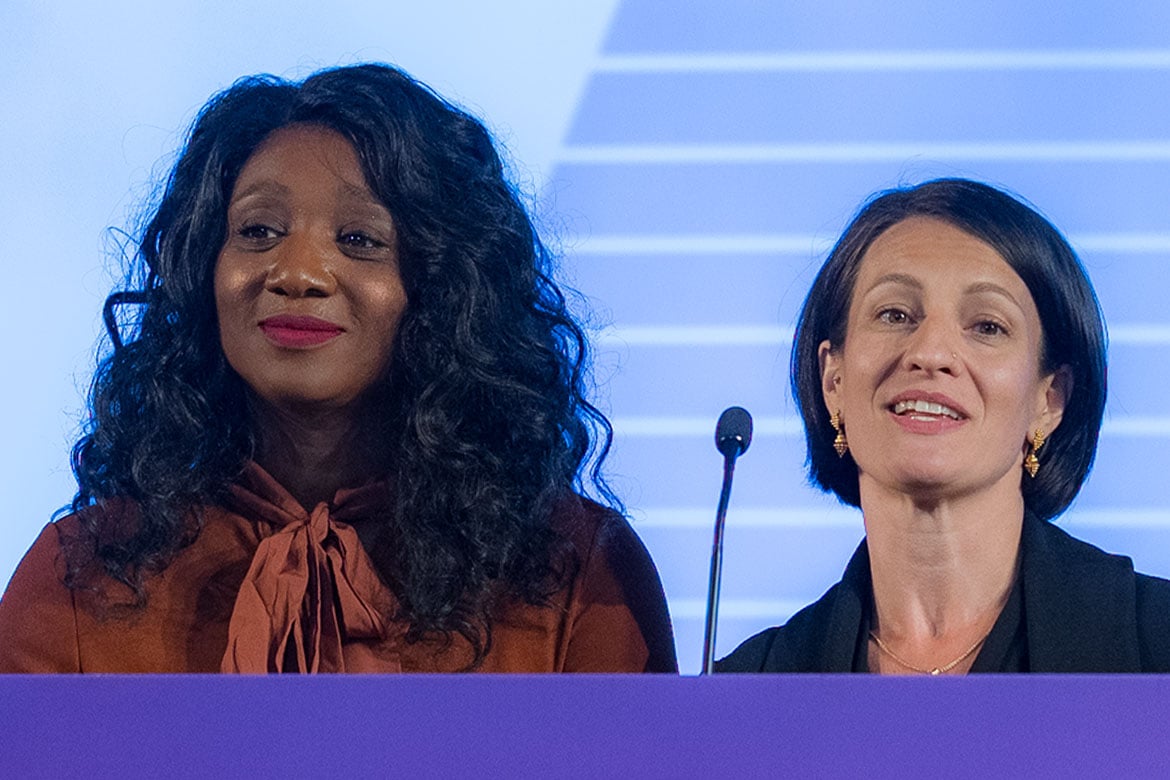The AMA has been working to eliminate health inequities and to make optimal health for all a reality. So has the Institute for Healthcare Improvement (IHI). And so have many other leading racial justice and health care organizations.
But these efforts have gone forward in a siloed manner, and this lack of coordination is limiting opportunities to learn from others’ experiences, to develop consensus and to achieve far-reaching impact, according to Camille Burnett, PhD, MPA, RN, DSW, the IHI’s vice president for health equity.
Through the Rise to Health Coalition, the AMA, IHI, leading racial justice organizations including Race Forward, Health Begins, PolicyLink, the Groundwater Institute and numerous other partners are planning to take coordinated actions that will have a strong national impact on breaking down barriers to achieving health equity.
“We have the vision for transforming the health care ecosystem where all of us, all people, can have the power, circumstances and resources to achieve optimal health,” Burnett said during the health equity open forum at the 2023 AMA Annual Meeting in Chicago, hosted by the AMA Center for Health Equity.
Emily Cleveland Manchanda, MD, MPH, director for social justice education and implementation at the AMA Center for Health Equity, outlined the Coalition’s five key audience pillars:
- Individual physicians and nonphysician providers.
- Health care organizations.
- Professional societies.
- Payers.
- Pharma, research and biotech.
Participants in those five groups will take coordinated action on impact areas focused on ensuring access, building a diverse and inclusive health care workforce, ensuring safe, high-quality care and addressing social and structural drivers of health. Dr. Cleveland Manchanda noted that the AMA and IHI are partnering with organizations and individuals that have been working on equity issues for decades.
“There’s too much work to do for us to be duplicating efforts,” noted Helen Burstin, MD, MPH, who is CEO of the Council of Medical Specialty Societies, which is co-leading the Professional Societies pillar of the Coalition alongside the AMA. “We can and must do better.”
Learn more and join the Rise to Health Coalition.
Addressing systemic inequities
Jack Resneck Jr., MD, now the AMA’s immediate past president, moderated a panel on the Rise to Health Coalition and noted the important role physicians play in advancing health equity.
“The AMA is really proud to be a partner in Rise to Health and to help leverage the power of organized medicine to transform our health care system around a unified vision for health equity,” Dr. Resneck said.
“Structural and systemic inequities within society—many of which are clearly rooted in racism—play an enormous role in people’s opportunities for a healthy life,” he added. “We know that system-level and structural changes are necessary, and in fact are the only way, to address systemic disparities and improve health in historically marginalized communities.”
Motivational stories
Dr. Resneck asked panelists what motivated them to advance health equity.
Karthik Sivashanker, MD, MPH, the AMA’s vice president of equitable health systems and innovation, described how his father, a family physician, was recruited by farmers to work in their Midwestern community and even built an office for him.
Often, his physician father was paid with the vegetables his patients grew or with meat from the animals they hunted. “I ate a lot of deer meat with shotgun pellets in it,” Dr. Sivashanker recalled.
Unfortunately, racism permeated this bucolic environment. He remembers seeing “KKK” etched into the walls of school bathrooms and being subject to racial slurs himself.
“Racism was a part of my childhood,” Dr. Sivashanker said. “My father left his practice because of racism, which was really hard because his patients loved him.”
Panelist Consuelo Wilkins, MD, MSCI, is the senior vice president and senior associate dean for health equity and inclusive excellence at Vanderbilt University Medical Center. She recalled growing up in a small Mississippi town where Black residents didn’t have access to health care and usually died at home—often because they were turned away from the hospital emergency department.
“I grew up often times not really understanding some of the little things we went without, but it was very clear to me that I lived in a town that was segregated in the 1970s in the United States,” Dr. Wilkins said.
“We hear so many things now about the reluctance to accept history and thinking about things that happened decades and centuries ago, but they are still happening right now or certainly in the very near past,” she said. “Those things impacted my family’s health and my community’s health.”
Those experiences also inspired her to become a doctor.
Seize the moment
Health equity is the “sentinel health challenge of our time,” said Kedar Mate, MD, president and CEO of IHI.
“The opportunity in front of us is to change inequity from something that is baked into our society into something that can be changed,” Dr. Mate said.
The AMA House of Delegates adopted policy last year establishing the open forum on health equity while the House was in session. “The health equity open forum serves as a platform for critical conversations about complex topics in medicine,” said AMA Senior Vice President and Chief Health Equity Officer Aletha Maybank, MD, MPH.
Dr. Maybank also reviewed progress on implementation of the AMA’s strategic plan to embed racial justice and advance health equity, a three-year road map to “plant initial seeds for action and accountability.”
“I am pleased to share that we are on track,” she said. The AMA has taken nearly 60 actions to advance the strategic plan aims of embedding equity across the AMA enterprise, including building alliances, ensuring equity in innovation, pushing upstream to address all determinants of health, and fostering truth, reconciliation, racial healing and transformation.




